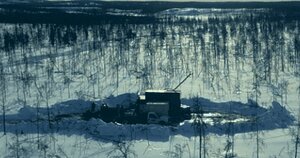Doug Casey: Absolutely. It's unquestionably the safest, cheapest and the cleanest form of mass power generation. That's not to say that there aren't problems, as the Fukushima incident made clear. As much of a disaster as that was—a combination of earthquake, tsunami and radiation leakage—so far it's just been a big industrial disaster. I daresay that if government hadn't been so involved in nuclear power these last 50 or 60 years, the technology would have been much further along. Nuclear power would be much safer, cheaper and cleaner than it is today. We might, for instance, be using thorium, which appears to be better than uranium in many ways. We would almost certainly have much smaller, cheaper, and robust reactors.
So, yes, I'm a huge uranium bull. If you want mass power, you need nuclear power. And today that means uranium. I'd say uranium is a great place to be for at least the next generation.
TER: But considering the fact that governments remain involved and people are even more squeamish about nuclear power post-Fukushima, won't we see a stall in nuclear power and development?
DC: That's possible. But, the hysteria is mainly going to affect the Western world. China and India recognize they have no alternative to nuclear power. As you know, the growth is in China, India and other emerging economies; it's where the most of the world's people live. The Western world is small by comparison, and getting smaller. These other places will continuing full steam ahead with nuclear.
TER: Porter Stansberry, whom you know well, recently told us to expect the U.S. to become a net exporter of natural gas in the not-too-distant future. Do you see that as well?
DC: Quite likely. Let's talk about peak oil first, though. I think that the Hubbert peak theory is accurate, and for good geological reasons—but understand that peak oil doesn't mean we're running out of oil. Rather, it means that we're running out of easily available, cheap light sweet oil. And we are.
However, technology is always improving, enabling economic recovery of oil and natural gas in places where it previously wasn't possible. Horizontal drilling and the fracking process have opened up gigantic reserves of gas, scores of trillion of cubic feet in some basins in the U.S. So, yes the U.S. could become a huge exporter of natural gas. It's entirely possible. It could happen in other regions of the world as well, but probably not with gas at its current prices.
The gas is available, but because it's very underpriced relative to other forms of energy, it probably won't be produced until the price doubles or even triples from where it is now. That would bring it more into historical alignment with oil prices, which I expect will themselves go higher as well.
TER: How is it that the oil prices have remained relatively high and gas is still so low? Given the differential of the two price points, why aren't we seeing a conversion from oil-dependent cars, for instance, to natural gas?
DC: Oil has much a greater density of energy than natural gas, and a much more convenient energy-based fuel, so of course we've all gravitated toward it. It's not really feasible for aircraft, for instance, to be able to run on natural gas, so they'll continue to use oil-based derivatives. In addition, gas is much harder to transport than oil. So it's tended to be a local market, whereas oil is international.
But since most all the easy, cheap oil's been found—mostly in the 60s and 70s—and those old oilfields are going into decline, gas is probably the next thing. Gas has some advantages as well. For one thing, it burns cleaner. Remember that these fuels, these petrochemicals, basically contain just hydrogen, oxygen and carbon. As technology advances, we should be able to manipulate these very simple and well-understood molecules and put them into a form we want. We'll be able to do it ourselves in various ways as nanotechnology, for instance, develops further in the future. Then maybe we won't have to rely on nature doing it for us over billions of years.
TER: Despite criticism of the effects of government involvement—stifling nuclear energy advancement over the years, as you mentioned earlier, or printing money to paper over enormous amounts of debt, as you've pointed out in other interviews—you've indicated that improving technology is a countervailing trend that actually will increase the standard of living.
DC: Exactly. There are more scientists and engineers alive today than have lived in all previous history put together; that's a huge cause for optimism. Technology is very likely to solve many, many problems—as long as the scientists and the free market are allowed to develop these things, and as long as there's capital available to manufacture the tools they need to do so.
TER: What are you hoping attendees come away with from next month's summit?
DC: People come to these conferences is to get ideas about intelligent places to put their capital. Today those places are harder to find than has ever been the case before in my lifetime. With the dollar's imminent demise, staying in cash is also very dangerous. There are very few bargains to be found in the world of investment today. Stocks today are quite overpriced by almost any parameter. Bonds will implode; that's especially serious because they're a much bigger market than shares. Property prices are still headed down. So people are looking for answers, and I think we have some.
Beyond answers along those lines, we also host these summits to discuss some investment principles so that our attendees don't have to rely on us for answers. They'll be equipped to deal with these things on their own.
TER: What are some things that investors can do investors protect themselves?
DC: It's very hard to be an investor in today's world, because an investor is someone who allocates capital in a way to create new wealth. Inflation, taxation and regulation make investing very problematic—and all three are becoming much more severe. That said, it's late in the day but not too late to buy gold, silver and some other commodities. Productive assets of several types are good to own. Of course, the easiest way to buy most productive assets is through the shares of publicly traded companies, but since the stock market is overvalued in my opinion, that's not the best option right now.
In addition to trying to build personal holdings of gold, and to a lesser degree silver, I think people should learn to be speculators. That's not to be confused with gamblers, who rely on random chance. Speculators position themselves to take advantage of politically caused distortions in the marketplace, and we'll be seeing lots of those. In a true free market society, you'd see very few speculators because there'd be very few such distortions. But compounding regulations, taxes and currency inflations are likely keep markets very volatile. Good speculators will position themselves to both capitalize on inflating bubbles, and identify bubbles that already have been blown to their maximum and are about to pop.
Increasing government involvement in the economy is going to literally force people to become speculators.
TER: What bubbles might speculators look to exploit?
DC: As I mentioned earlier, most forms of real estate in the U.S. are problematic because the U.S. bubble hasn't completely deflated yet, and real estate bubbles are just starting to deflate in places such as Australia and Canada. Probably the world's biggest real estate bubble is in China. It's relatively hard to short real estate, of course. But shorting banks there might work well. . .
Bonds are another story. I'd say bonds are the short sale of the century. They're going to be destroyed. Bonds pose a triple threat to capital:
- 1) Interest rates are artificially low, and as interest rates rise—which they must—bonds will fall.
- 2) The currencies that bonds are denominated in, let's say dollars, will depreciate radically.
- 3) The credit risk presented by many issuers—certainly including governments—very high.
On the long side, mining stocks are very cheap relative to the price of gold right now. There's an excellent chance of a bubble being ignited in gold mining stocks, especially the small ones; in fact, I'd put my finger on that as likely being the easiest way to make a killing—although there's plenty of risk.
TER: How about technology? Do you see a bubble forming there?
DC: You have a point, but I'm not sure you can talk about technology stocks as a whole; technology is too variegated, too vast a field. I must say, however, that I've always been a huge fan of nanotech—that is an area that will change the nature of life itself. The market will see that, and so it's a definite candidate for a mania. With gold stocks, however, you can jump into a discrete universe.
TER: Any others?
DC: Just talking about the things that seem most obvious to me, like gold. . .well, oil isn't cheap, but a lot of oil stocks are. Natural gas, as we said, impresses me as being cheap relative to other commodities. A favorite of mine is cattle—the downside is de minimus and the upside is huge.
TER: Well, Doug, thank you so much for your time and this preview of your October event. I imagine you look forward to it for many reasons, including the fact that it's sometimes nice to be with other intelligent people who want to broaden their horizons.
DC: It is. It's nice to spend time with others who see things the way you do, and with whom you have some philosophical principles in common. The people who come to our conferences share what I believe to be a sound view of the world. They're not statists; they're not collectivists; they're not misguided, ignorant or wrong-headed. They're an enjoyable company.
Doug Casey, chairman of Casey Research, LLC, is the international investor personified. He's spent substantial time in over 175 different countries so far in his lifetime, residing in 12 of them. And Doug's the one who literally wrote the book on crisis investing. In fact, he's done it twice. After The International Man: The Complete Guidebook to the World's Last Frontiers in 1976, he came out with Crisis Investing: Opportunities and Profits in the Coming Great Depression in 1979. His sequel to this groundbreaking book, which anticipated the collapse of the savings-and-loan industry and rewarded readers who followed his recommendations with spectacular returns, came in 1993, with Crisis Investing for the Rest of the Nineties. In between, his Strategic Investing: How to Profit from the Coming Inflationary Depression broke records for the largest advance ever paid for a financial book. Doug has appeared on NBC News, CNN and National Public Radio. He's been a guest of David Letterman, Larry King, Merv Griffin, Charlie Rose, Phil Donahue, Regis Philbin and Maury Povich. He's been featured in periodicals such as Time, Forbes, People, US, Barron's and the Washington Post—not to mention countless articles he's written for his own various websites, publications and subscribers.
Want to read more exclusive Energy Report interviews like this? Sign up for our free e-newsletter, and you'll learn when new articles have been published. To see a list of recent interviews with industry analysts and commentators, visit our Exclusive Interviews page.
DISCLOSURE:
1) Karen Roche and J.T. Long of The Energy Report conducted this interview. They personally and/or their families own shares of the following companies mentioned in this interview: None.
2) The following companies mentioned in the interview are sponsors of The Energy Report: None.
3) Doug Casey: I personally own shares of the following companies mentioned in this interview: None. I personally and/or my family am paid by the following companies mentioned in this interview: None.







































